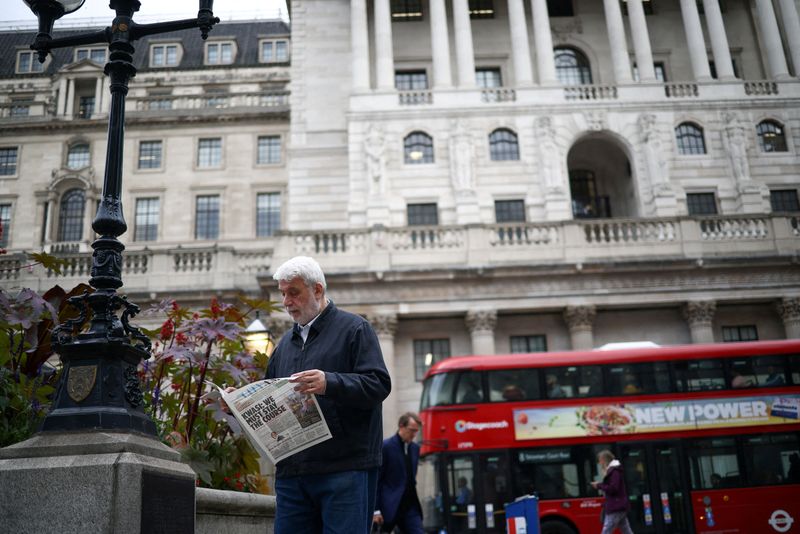By Geoffrey Smith
Investing.com -- The Bank of England raised its key interest rate by another 50 basis points on Thursday, warning that its battle against inflation still isn’t over, but held out the possibility of an end to its policy tightening by the middle of the year.
The move, which was as expected by financial markets, takes the Bank rate to 4%, the highest it’s been since the 2008 financial crash.
By raising the cost of mortgage and consumer credit, it threatens to sharpen an already clear economic downturn. The International Monetary Fund expects the U.K. to be the only G7 economy that will shrink this year, and household spending had already showed signs of slowing at the end of last year.
However, the Bank was forced to keep raising interest rates because inflation is also running higher than in the U.S. or the rest of Europe and, at 10.5% in December, hasn’t come down as quickly as it has elsewhere.
“Headline CPI inflation has begun to edge back and is likely to fall sharply over the rest of the year as a result of past movements in energy and other goods prices,” the Bank said in a statement accompanying the decisions. "However, the labor market remains tight and domestic price and wage pressures have been stronger than expected, suggesting risks of greater persistence in underlying inflation."
Even so, its calculations still showed that current market expectations of a peak in rates around 4.5% in mid-2023 were consistent with inflation falling to its 2% target in the medium term. That suggests it doesn't see the need to raise the Bank rate by more than another 50 basis points.
As in December, the Monetary Policy Committee was not unanimous in its decision, with two members voting for no change in the Bank rate.
